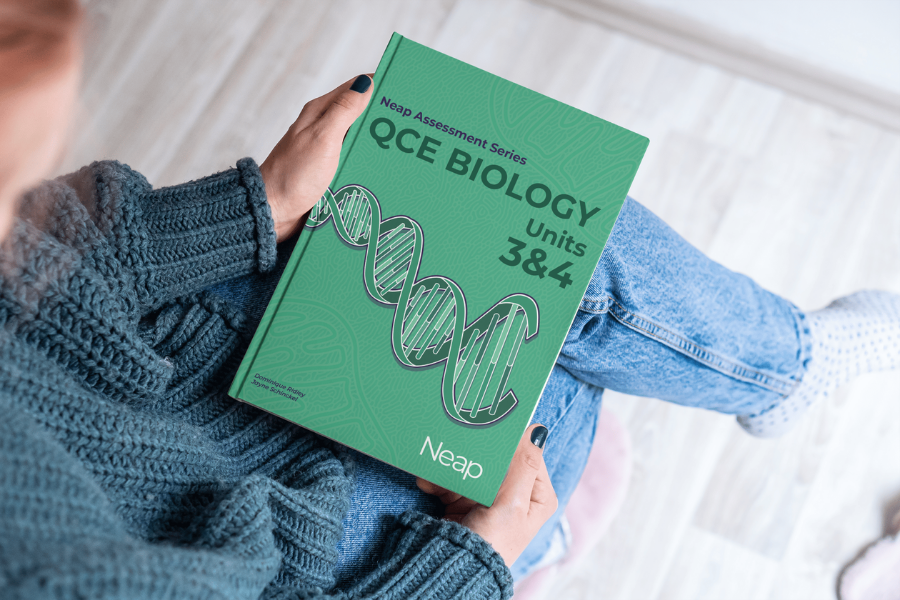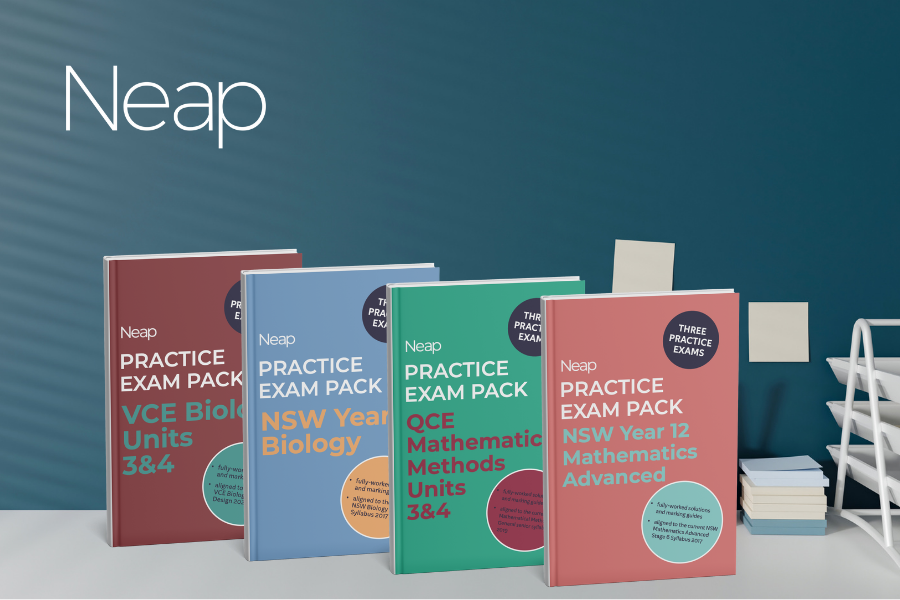We sat down with our authors Dominique Ridley and Jayne Schinckel to discuss the new QCE Biology 2025 General senior syllabus and how the Neap Assessment Series will support teachers and students alike.
What's new in the QCE Biology 2025 General senior syllabus for Units 3&4?
DR: The 2025 syllabus introduces several updates to Units 3&4. Notably, key ideas from the 2019 syllabus have been refined with changes to subject matter that improve clarity and focus, and place a stronger emphasis on contemporary biological contexts.
JS: In Unit 3, the core concepts remain consistent with the 2019 syllabus in that students continue to explore biodiversity, ecosystems, species interactions and classification. The main updates occur in the form of terminology and clarification on key ideas.
DR: The focus of the unit has shifted toward a more refined understanding of biodiversity through modern classification methods, such as molecular sequencing and bioinformatics. Ecosystem dynamics are also explored in greater depth, including energy flow, nutrient cycling, and population ecology. There is also a stronger emphasis on understanding how ecosystems change over time due to both natural processes and human impacts.
JS: Unit 4 features more significant updates!
DR: The unit delves into the molecular basis of inheritance with a detailed study of DNA structure; gene expression; and the processes of mitosis and meiosis. Students explore how genetic variation arises and the impact of mutations on phenotypes, along with applications of biotechnology.
JS: It also has a clearer focus on evolutionary patterns and processes, and the links between macroevolution and microevolution. There is greater importance placed on evidence for evolution, incorporating comparative genomics, cladograms, and molecular sequence data to help students understand evolutionary relationships. In addition, there is more explicit inclusion of First Nations perspectives, particularly in relation to ecological relationships and long-standing understandings of biodiversity. Contemporary DNA technologies and their applications are also more clearly integrated into the content, along with an encouragement to consider ethical implications in modern biological research. These updates strengthen the clarity, relevance, and depth of the syllabus, better supporting student understanding and engagement with key biological concepts.
DR: Across both units, the syllabus has been streamlined to reduce redundancy and sharpen the focus on core biological concepts.
What content in the syllabus are you most looking forward to sharing with students?
JS: I’m excited to dive into the refined focus on evolutionary mechanisms and patterns. The way the syllabus now connects microevolutionary changes, such as allele frequency shifts, to broader macroevolutionary trends offers a fantastic opportunity to explore real-world examples with students. I also look forward to discussing how advances in molecular biology and genomics have deepened and continue to advance our understanding of phylogenetics and species relationships.
DR: I’m excited to go into more detail than was required in the 2019 syllabus regarding DNA replication, protein synthesis and explaining how gene expression is regulated in response to environmental signals. Students will be able to explore real-world examples of the impact of the environment on gene expression.
What can teachers and students expect from Neap Assessment Series: QCE Biology Units 3&4?
JS: Neap Assessment Series: QCE Biology Units 3&4 is fully aligned with the updated 2025 syllabus and provides comprehensive coverage of new and established topics. It includes a wide-range of high-quality practice questions, with fully worked solutions and marking guides. In addition to this, the book gives teachers and students quick access to topic summaries and key term definitions. It's a valuable resource for in-class learning opportunities, alongside formative and summative assessment.
DR: Teachers and students can expect a resource that supports teaching and learning of Units 3&4 Biology. Neap Assessment Series: QCE Biology Units 3&4 is structured in a logical manner that is easy to follow and allows focused revision of specific concepts from the syllabus. It is an excellent resource for teachers who want to prepare their students for the external exam thoroughly by providing regular retrieval practice and will support students who want that extra boost in their revision routine.
How can teachers incorporate Neap Assessment Series: QCE Biology Units 3&4 into their classroom?
DR: This book is a handy resource that teachers can add to their collection of revision materials. The Neap Assessment Series can be used as part of regular retrieval practice that is spaced and interleaved. It allows teachers to easily use proven effective learning strategies with minimal effort.
JS: We encourage teachers to use the series as a flexible learning tool that supplements quality teaching. The questions can be used for in-class activities, topic quizzes, home learning and targeted revision. It is ideal for identifying gaps in student knowledge, encouraging deeper thinking skills, and helping students to consolidate their understanding of the subject matter.
How can Neap Assessment Series: QCE Biology Units 3&4 benefit students?
JS: The organisation of the Neap Assessment Series lends itself to be an exceptional resource for structured revision. It helps students to develop confidence in applying their knowledge to multiple-choice and short answer questions. With fully worked solutions, and clear and concise explanations, it is a great reference for students to practice and familiarise themselves with external exam type questions.
DR: The Neap Assessment Series benefits students by providing targeted practice that aligns with the updated syllabus requirements. It includes exam-style questions, detailed solutions, and sample responses to help students build familiarity with external assessment formats. By working through these resources, students can identify areas for improvement, develop effective exam strategies, and build confidence in applying biological concepts and inquiry skills under exam conditions.
A must-have resource for the new QCE Biology General senior syllabus
This Neap Assessment Series book will offer comprehensive coverage of the new Biology Units 3&4 syllabus and feature:
-
Unit and Topic summaries and key definitions
-
practice questions for every topic in the syllabus
-
a difficulty rating for each question
-
detailed solutions and marking guides.
Want to learn more about the Neap Assessment Series? Reach out to our team or explore our website for more information.



